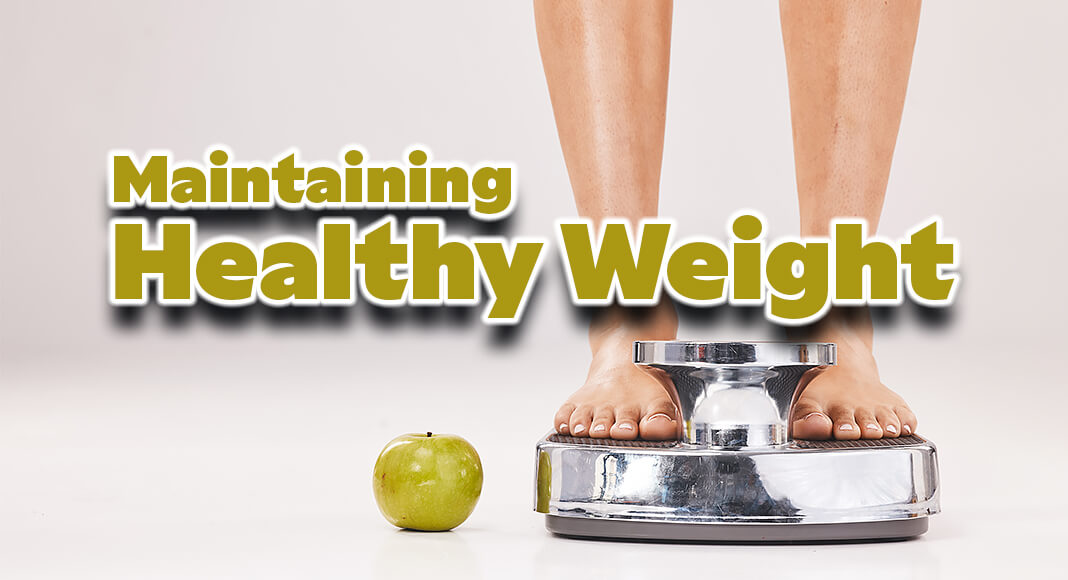
Mega Doctor News
| KEY POINTS |
| Healthy lifestyles include being mindful of calories, ensuring adequate nutrition, and being physically active. |
| Other factors such as sleep, age, genes, and medications can influence weight. |
Why it’s important
Managing your weight contributes to good health now and as you age. In contrast, obesity can lead to serious health problems including type 2 diabetes, high blood pressure, heart disease, and stroke.
Food and nutrition
Counting calories all the time is not necessary, but it may help to know how many calories you need.
MyPlate Plan calculates how many daily calories are needed to maintain your current weight. The calculation is based on your age, sex, height, weight, and physical activity level. Results show the recommended daily amounts of fruits, vegetables, protein, dairy, and grains for adequate nutrition at your calorie level.
Consuming a variety of healthy food is better than eliminating one type of food such as carbohydrates. If you reduce the variety of foods you eat, you could exclude vital nutrients or not be able to stay on the eating plan over time.
This diary may help
To learn how many calories you consume regularly, write down the foods you eat and the beverages you drink, plus the calories they have, each day. Check the nutrition facts label for serving sizes and number of calories, and consider portion size.
Physical activity
How much physical activity you need for overall health depends mostly on your age.
- Children aged 3 to 5 should be physically active throughout the day for growth and development.
- Children and adolescents aged 6 to 17 need 60 minutes or more of moderate-to-vigorous intensity physical activity each day. Children and adolescents need aerobic, muscle-strengthening, and bone-strengthening activities.
- Healthy pregnant or postpartum women need at least 150 minutes of moderate-intensity aerobic physical activity per week, such as brisk walking. This can be spread throughout the week, such as 30 minutes a day, 5 days a week.
- Adults need 150 minutes of moderate-intensity aerobic physical activity each week. This can be 30 minutes a day, 5 days a week. As an alternative, adults could get 75 minutes of vigorous-intensity or an equivalent combination of moderate- and vigorous-intensity aerobic physical activity each week. Adults also need at least 2 days a week of muscle-strengthening activities.
- Adults 65 and older need:
- At least 150 minutes a week of moderate-intensity activity such as brisk walking.At least 2 days a week of activities that strengthen muscles.
- Activities to improve balance, such as standing on one foot.
People who are physically active can still gain weight if they take in more calories than they use. Healthy lifestyles include being physically active, being mindful of calories, and ensuring adequate nutrition.
Tip
It may help to keep track of your physical activity. This diary can help.
Other factors
Getting enough sleep can help you manage your body weight. Other factors that contribute to overweight and obesity include age, medications, medical conditions, genes, and environmental factors.
As people age, their body composition gradually shifts—the proportion of muscle decreases and the proportion of fat increases. This shift slows their metabolism, making it easier to gain weight. In addition, some people become less physically active as they get older, increasing the risk of weight gain.
Diseases such as Cushing’s disease and polycystic ovary syndrome may lead to weight gain or obesity. Drugs such as steroids and some antidepressants may also cause weight gain.
Genes can directly cause obesity in specific, single-gene disorders, such as Bardet-Biedl syndrome and Prader-Willi syndrome. However, multiple genes often interact with environmental factors to affect health.
Environmental factors can make it harder to eat healthy or be physically active. Examples include limited access to healthier foods or places to be physically active, such as sidewalks. The presence of certain chemicals in the environment may also affect weight.
Your health care provider is the best person to ask whether illnesses or medications are contributing to weight gain or making weight loss hard.
Resources
Nutrition in Daily Life
Good nutrition is essential for staying healthy throughout the stages of life.
Tips for Healthy Eating for a Healthy Weight
People with healthy eating patterns lives longer and are at lower risk for serious health problems such as heart disease, type 2 diabetes, and obesity.
Water and Healthier Drinks
Water has no calories, so replacing sugary drinks with plain water can help reduce caloric intake.
Physical Activity in Daily
One way to help your physical and mental health is to stay physically active.
Physical Activity and Your Health
Physical activity can increase the number of calories your body uses for energy. Burning calories through physical activity, combined with reducing the number of calories you eat, can help with weight loss.
Physical Activity Benefits
Physical activity can make you feel better, function better, and sleep better. Learn about the benefits and how to measure progress.
About Sleep
Getting enough sleep can help you improve your heart health and metabolism while also reducing your risk of chronic conditions among other things.
Losing Weight
Even a modest weight loss, such as 5% to 10% of your total body weight, can produce health benefits.
Information Source: CDC








